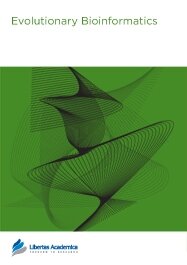

Publication Date: 05 Jul 2012
Type: Rapid Communication
Journal: Evolutionary Bioinformatics
Citation: Evolutionary Bioinformatics 2012:8 417-421
doi: 10.4137/EBO.S9179

The community needed a reliable and user friendly tool to quickly produce robust phylogenetic trees which are crucial in evolutionary studies and genomes’ functional annotation. FIGENIX is software dedicated to this and was published in 2005. Several laboratories around the world use it in their research, but it was difficult to use for non-expert users, thus we developed a new graphical user interface for the benefit of all biologists.
PDF (1.89 MB PDF FORMAT)
RIS citation (ENDNOTE, REFERENCE MANAGER, PROCITE, REFWORKS)
BibTex citation (BIBDESK, LATEX)
XML
PMC HTML
My co-authors and I had a very positive experience with the review and publication process in Evolutionary Bioinformatics. The reviewers were rapid and on point, and publication was also rapid after we made the necessary revisions.

All authors are surveyed after their articles are published. Authors are asked to rate their experience in a variety of areas, and their responses help us to monitor our performance. Presented here are their responses in some key areas. No 'poor' or 'very poor' responses were received; these are represented in the 'other' category.See Our Results
Copyright © 2013 Libertas Academica Ltd (except open access articles and accompanying metadata and supplementary files.)
Facebook Google+ Twitter
Pinterest Tumblr YouTube